Qualities Of Leaders Past, Present, And Future With Cameron Herold
Podcast: Play in new window | Download
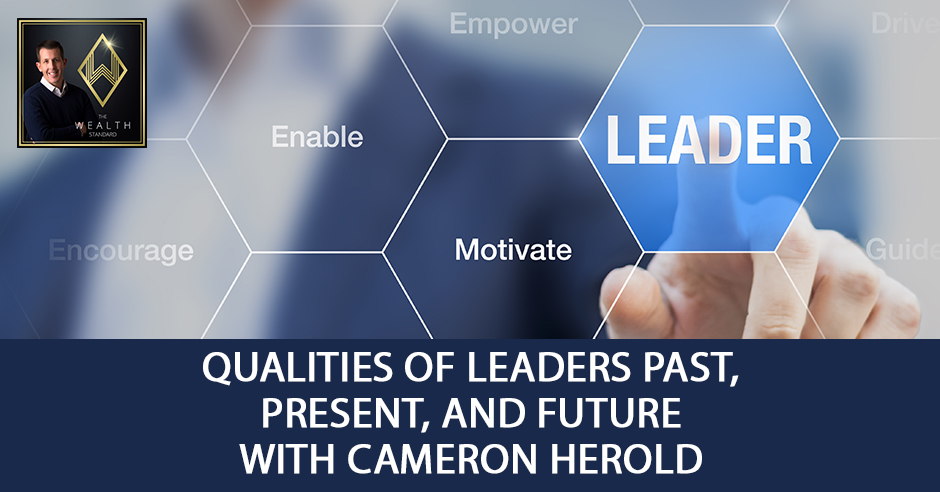
Every project and every major endeavor needs a leader who will make the tough calls, the big decisions, and steer everyone towards success. But what qualities make for a good leader? Using a broad range of examples, Cameron Herold explores the stories and backgrounds of leaders in various fields and industries. Cameron is the host of the Second In Command podcast and the bestselling author of several books, including The Miracle Morning for Entrepreneurs, Free PR, and Double Double. Is there actually small, specific set of qualities that make for a strong leader? Or do we understand what a leader is not? It probably depends on who you want to look at first.
—
Watch the episode here:
Listen to the podcast here:
Qualities Of Leaders Past, Present, And Future With Cameron Herold
You guys know my guest not necessarily in person but I reference him quite often. His name is Cameron Herold. Cameron is the host of the Second in Command podcast and also the bestselling author of The Miracle Morning for Entrepreneurs: Elevate Your SELF to Elevate Your BUSINESS, as well as Meetings Suck: Turning One of the Most Loathed Elements of Business into One of the Most Valuable. One of his newer books, Free PR: How to Get Chased by the Press Without Hiring a PR Firm. One of my favorites is Double Double: How to Double Your Revenue and Profit in 3 Years or Less. It’s in seventh printing. This has been popular not just in my life but in others’ lives as well. Cameron is also the Founder of COO Alliance, which is an organization that helps COOs become better leaders. He is the mastermind behind hundreds of companies’ exponential growth. He’s built a dynamic consultancy including his time as COO at 1-800-GOT-JUNK?. His clients include Big 4 wireless carrier as well as a monarchy which must be an interesting experience for you. Cameron, you bless my life in so many ways and I’m really grateful to have you on now.
Thank you.
Cameron, let’s focus on the idea of an entrepreneur and what makes up an entrepreneur, not just in the early stages but as they grow. Firstly, what do you often see as the common attributes in an entrepreneur that leads them to long-term success?
Strangely enough, a lot of the attributes are the ones the school system and the medical community have labeled as diseases. A lot of entrepreneurs have Attention Deficit Disorder or ADD or a lot of entrepreneurs are on the spectrum for bipolar disorder. I’ll explain why both of those are traits that are found in most entrepreneurs and why they’re superpowers, not diseases. In terms of attention deficit disorders, I have seventeen of the eighteen signs of ADD. I am hyper-aware of everything that’s happening. I see what’s happening with my customers, suppliers, the market, the economy. I noticed the little tiny things on the website. Patterns jump out at me off spreadsheets. I’m hyper-aware of time and return on investment and everything that’s going on in the business landscape within my company and around me which gives me a superpower because I’m seeing everything that’s happening. Because I’m seeing everything, I get a little bit distracted, which gets me passing stuff off to people, which is delegating. That’s a good thing.
If I was so hyper-focused, I would miss everything. If I was like an engineer, a doctor or a lawyer, I’d be so hyper-focused on one thing, I would miss all the important stuff. It’s almost like the absent-minded professor. That’s a terrible trait to have as a business person. The school system and the medical community thinks that having this disbursement of attention is a bad thing when it’s actually really good. We’re not supposed to be teachers, doctors, engineers or lawyers. They think that there’s something wrong with us but we’re not supposed to be like them. You don’t find a whole lot of inspiring teachers who are running companies. They’re not like us, we’re not like them but we also don’t have a disease.
The second thing is the bipolar. Bipolar is the manic depression or hypomanic episodes. Ted Turner had it. Bill Gross had it. Two of the founders of Netscape, Steve Jobs, Henry Ford, Richard Branson, all bipolar. Those aren’t diseases after all. The mania of bipolar or the hypomanic periods are often what gives us the energy to start things. They give us the enthusiasm and the energy, the quick start nature of doing an acquisition, opening up in a new market, hiring somebody before we’re sure of how we’re going to pay for them, taking what people see as risks. We get very calculated bets because we see everything going on around us. They see it as risky and we see it as momentum creating momentum. No one’s going to join you if you’re a flat energy. You are controlled, calculated like a teacher, a doctor or an engineer, it’s boring.
That crazy manic energy is why people join. It’s why they quit a company. It’s why they invest. The depression and stress is simply a course-correcting moment when we’ve got too much stress in this zone and we don’t have a network of people to speak with or talk to that we can share how it’s going. You can’t tell the employee that you’re recruiting, that you’re not quite sure how you’re going to be the payroll but you’re the best company in the world. You can’t tell your spouse that you’ve leveraged everything to make that next big bet. You can tell her when you’ve made it successful but it’s hard to tell them about the stress that we’re under. We often live in this zone that causes the hypomanic periods or the stressful depressing.
Leadership is not about having all the skills. It's about having the ability to inspire and align others as well. Share on XBipolar disorder has been nicknamed by the medical community as the CEO disease. If 3% of the population are bipolar and 3% of the population are entrepreneurs, maybe it’s a correlation of success, not a correlation of a disease. That’s what makes them successful are traits. That’s the thing one. Thing two, our nature is the traits. The nurture part is strong leadership skills, strong sales skills, strong business planning skills, strong understanding of skills. Nowadays, more than ever, we no longer have to be the smartest person in the room. We have to be in the right room. It’s about the networking and the ability to network, mastermind and connect to with others who can solve the problem for us. It’s a who problem not a how problem. Thirty years ago, you had to memorize everything and learn it and know it or hire people. Now, you just have to know who can do it for you.
Where does leadership fit into that? The principles, the attributes of leadership, is that on the shoulders of the entrepreneurs or on the shoulders of a different position or both maybe in different ways?
Leadership is a soft skill that allows you to attract people. It allows you to align people, allows you to inspire people. That’s with customers, suppliers and employees. In all three, if you’re not a strong leader, you’ll fail. In fact, 30 years ago, I was in an organization called College Pro Painters. I recruited and hired Kimbal Musk, Elon’s brother, to be a franchisee for me and then also his cousin who built Solar City. He worked for me back in 1993 as well. One of the other guys who worked for me, I won’t use his name, but my VP came in and he said, “This guy will not be successful as a franchisee. He will fail.” I was like, “No, he’s got it. I can lead him, coach him, manage him.” He said, “He’s an alien. He does not fit. He cannot lead. He will not be able to lead himself. He won’t be able to lead his employees. He won’t be able to inspire. He’ll work hard. He’ll have the tenacity, he’ll have goals, but he doesn’t have the leadership traits or skills to be able to lead others or himself.” Sure enough, he was completely right. This guy completely failed. It’s not about having the skills, it’s about having the ability to lead, inspire and align others as well.
Is that innate or is that something that can be acquired?
No, it’s innate. Leadership is something that you noticed in kids. It’s the kid who is basically told to sit still and pay attention in class because they’re disrupting class. The reason we’re disrupting is everyone’s following us. That’s an energy field that you have. A leadership is more of an energy field and an EQ. It’s the ability to notice the top kids, the captain of the teams, the top Cub, the top scout, the kid in a church youth group, the one who calls all of his friends and they follow, the people who they hang out at your house, that’s leadership. That’s innate. It’s a magnetic field and an energy trait that people have or don’t have. You can learn how to be a better leader but it’s really hard to shift the energy in a way that gets other people to be attracted.
The seed has to be there first and then you nurture that seed in order for it to grow. Stepping back one moment, the mold of an entrepreneur and these attributes which are essentially alienating people from the mold of what society considers successful, whether it’s education or the medical community. What are the ways in which entrepreneurs acknowledge this, identify it and then escape it? I’m not sure if escape is the right word but handle it because part of our human nature, we want to have friends, we want to be in community, we want to have fun with other people not just ourselves. What are the ways in which entrepreneurs identify who they are, that they’re different from the common mold and then are good and okay with it?
This is changing now since the last number of years but since 1998, 1999 when the first rise of the first dot-com era happened, entrepreneurship started to be cool. Through 2008, 2009 the second way it became very cool because people realized, “It wasn’t this flash in the pan crash. It’s back. It’s not going away. You can be an entrepreneur. You could travel the world, you could work from anywhere remotely with a laptop. You could make money in your sleep or you could make money remotely.” All of a sudden, entrepreneurship became cool. Prior to 1998, a book written in 1955, the only book where the entrepreneur was a hero. Otherwise, the entrepreneur was a capitalist. They were greedy and were materialistic. Even when I was growing up, the rest of my family thought negatively of our side of the family because we were all entrepreneurs. That we were greedy, profit-centric, only concerned about money. It wasn’t true. I was raised to be an entrepreneur to control my time, that I could have my free time, not about money.
There’s so much similarity in the word capitalist and entrepreneur as far as what they describe. At the same time, those words in most people’s minds have completely different meanings. That’s a very interesting point. Would you consider from how society views on the entrepreneur more of the value creator, the innovator or someone that’s making life a better as opposed to the capitalist, which I would say is construed as the exploiter, someone who takes advantage of others for gain?

Qualities Of Leaders: Leadership is the skill that allows you to attract, align, and inspire people.
It’s both but I don’t think they’re exploiting. This is what we realized even in the book, Atlas Shrugged, was we don’t need a government or a union to teach us what we need to do. We’re going to do that out of profit and greed alone. We’re going to build a great company because it gives us more cash and gives us more time. We’re going to take care of employees because they make us more money. We don’t need anyone to tell us to do that. That’s what we will do. If they don’t, we have a bad company. I don’t think there’s anything wrong with being a capitalist. Why shouldn’t we be able to make money and have the profits from what we are? Anybody else out there can take risks too but most don’t. More people work for government, either Army, Navy, Air Force, Marines, teachers, doctors, lawyers, City State, Federal government. More people are paid by the government that are paying taxes into the government. All of those people who sit and complain about capitalists in greed have a choice but they don’t want to make it. They don’t want to be an entrepreneur. A lot of them get a pension for life and they can retire after 25 years. That’s great. That’s not the path I choose. I choose to be in control of my life, my profit and my time.
The philosophical angle that you could take on the nature of an entrepreneur, nature of the capitalist is how long has it’s existed and how evident it is and in so many different aspects of history but yet still, the view on it continues to be misunderstood. We don’t need to go down that path because there are a few things I wanted to get into. I associate these things with your expertise and what you’ve taught and what you’ve written about. When it comes to the entrepreneur and maybe the seed level where an idea is planted and a value proposition is created and then scaling into leveraging a team, what are some of the common challenges as entrepreneurs go from those initial toddler stages into the teenage, young adult years? What are some of the common challenges they face that they must overcome?
I’ll tell you one trait that we’ve noticed with most entrepreneurs is that in grade school or high school, they had at least one venture and it might only last for a day. It might last for a week, but at least one time, they were buying stuff and selling stuff for more. They were buying a box of business or hockey cards and selling them for more. They were buying candy and selling it for more. They were selling their Halloween candy. They were buying low and selling high. That’s a trait and this isn’t necessarily a good thing but there’s an extraordinary amount of entrepreneurs that sold pot at some point in their life. They bought something, they split it up and they sold it. They understood the hustle, the value. They understood that there was a need and they can satisfy it.
Also the margin.
That’s a trait that you see. Something that a lot of them struggle with is a lot of kids are recognizing that school is not that good, not that valuable, that it emotionally is beating up a lot of kids unless you’re a pure A student. The other 95% of the kids are told every day, “You’re dumb. You’re not good enough. You’re not very smart.” That emotionally takes a massive toll on people. I went to school for eighteen years and was always told I was a C student. I was always told I was a 65 percenter. I would struggle and work really hard and let down again. That emotionally destroy somebody’s confidence over time. A lot of kids are wondering why they’re even in school in the first place. I was listening to a couple of girls that were going off to college and they were saying, “I’m going into college but I think I might drop out after first year. I just don’t see value.” I’m like, “Good for you.” You can’t run the ROI and make sense of this anymore in most cases.
You’re familiar with Robert Kiyosaki. He wrote the book, Why ‘A’ Students Work for ‘C’ Students and ‘B’ Students Work for the Government. It’s very relevant to all the comments you’ve made. Again, going to society and how society through the school system has objectively in a sense measured a person of their identity, their intelligence. That’s extremely debilitating for people, for students as they grow up. I do love the thing you said with regard to entrepreneurs. The ideas becoming more renown and there’s more of the hero element labeled as the entrepreneur rather than the black sheep or the person that’s a little weird. It’s growing in popularity because people have seen the results of what ideas have done to improve the lives of everybody.
The struggle that a lot of them have is that they don’t realize that entrepreneurship is a lot tougher than they think. It’s not that easy to go out and plug up your website and all of a sudden get sales. They get sales, but they realize they’re spending so much on affiliate fees, marketing, advertising and overhead that they not making enough margin. A lot of them don’t slow down enough to think through the little bit of the business model and how much work or time it’s going to take to scale to replace their job. A lot of people are moving more to the gig economy, which is still very entrepreneurial but then the gig economy, what they’re doing is that they are able to do a great job that they’re great at but do it for a number of companies. Instead of being a copywriter for one company, they might be a copywriter for ten. Some of those people are able to make that transition into turning that into a company, which is amazing.
Would you comment on the dynamic of getting to the stage in which a team and employees are required, business units are required. Going off of some of the challenges that entrepreneurs face, what are those common ones when it comes to building a team, building those around you that have certain skillsets that help to maximize yours?
Nowadays, we no longer have to be the smartest person in the room; we have to be in the right room. Share on XSometimes it’s a requirement but sometimes it’s more of an opportunity. The opportunity is that you’re leaning out into the future and deciding to build something that’s bigger than you, that allows you to make money from other people. It replicates yourself. As an example, when I was running my first business, I was 21 years old. I had twelve full-time employees. They were painting houses for me. I was making $3.52 per labor hour. I knew that if I had all twelve people working, I was making about $38 an hour. That was better than me working as a painter and making $15 because if I could have them making $38 an hour and I could take four hours off during the day, I was making money and I controlled my time. It was about, how do you replicate yourself to move yourself out of the equation so that other people are making money for you and they’re still doing well?
Could that be characterized as leverage?
Yes. It’s leaning out into the future and deciding what you are building. A lot of people don’t sit and craft what their life looks like. I talked about this in my book, Vivid Vision, about deciding what your life looks like, deciding what your business looks like and then working it backward and figuring out, “How can I make that happen?” If you want a business that throws off free time and throws off the money, that’s what you have to do, reverse engineer that. You’re not hiring people because you need to, you’re hiring people because it logistically makes sense.
I didn’t plan on asking you this because Vivid Vision is something that I connected deeply with when I read your book. I haven’t finished the second one but wrote the first one from 2017 going into 2020. It was one of the worst points of the business since 2008, 2009. What I was writing down and going through the different exercises that you recommend, it’s this idea of being pulled into the future. Most people are living by looking in the rear-view mirror as opposed through the windshield. I am not sure where that comes from. It’s evident in a lot of different circumstances. The idea of looking into the future and specifying things, thinking about things and visualizing things that pull where you are right now into that vision. Would you maybe comment on that?
A lot of this that people don’t think strategically about what they want to build. They’re thinking strategically of how to build it. Those are very different things. How to build something and what you’re building are two very different things. What people need to first think about is, “What am I building? What does it look like in that future? How do I build that?” When Elon Musk acquired Tesla, he bought Tesla from the founders and investors and then he decided he was going to build something. Do you know why the Tesla Model S has the seven-seat option?
No.
He’s got five kids. He’s got twins and triplets. If you’re going to build a car company, it may as well fit your family. Secondly, he’s got five kids. Elon is 6’5″ and he’s an inch taller than I am. When he sits in the front seat, the person sitting behind him has a lot of legroom. It works for him. It is a really sleek, fast vehicle like his former car, the McLaren F1 was. It’s fast, sleek and fits his family. He said, “We have to price it in a way that people can buy it. Who wants to help me build it?” That’s somebody who was leaning out into the future and reverse engineering it. Most people try to make what they have a little bit bigger.
I’d love to keep going on that topic, but I wanted to address one of the big projects that you have which is the COO Alliance. Would you talk about the difference between a CEO and a COO? How they work in harmony to carry out this vision of the future?

Qualities Of Leaders: Entrepreneurship is a lot tougher than you think. It’s not that easy to go out and plug your website and all of a sudden get sales.
The COO’s role is to play the balance to the CEO. The CEO is the visionary and the person who’s thinking about where to go, the COO figures out how to make that happen. It’s almost like if you had a traditional family, it has a husband and wife raising kids. If you asked her how did you raise your kids, she’d have a very true story. If you ask him, how did you raise your kids? He’d have a very true story, but they’d be different. They’re in sync together as a team. It’s a yin and yang. The COO has to be good at and love to do all the stuff the CEO doesn’t like to do or sucks up. It’s very different from different companies. In some cases, the CEO runs finance. In some cases, they run marketing. In some cases, they run ops. It’s very different.
As you work within the COO Alliance, which is training these leadership positions to be better leaders and of course, be the yang to the yin of the CEO. What are some of the common light bulb moments you see when you’re taking them through your curriculum, the exercises, meetings and so forth? What are some of those common things of like, “I never realized that worked, that makes total sense and I can’t believe I didn’t see that before?”
First off is getting the COO aligned with the visions that they understand what their building, coming up with a plan and ensuring the CEO signs off on the plan and then working on the skillset of the COO to keep increasing their skills so that their skillset is ahead of the curve of what they need to be good at. They’re always getting better because the company is going to be getting better as well. They’re always going to be leaning out into the future and working on those.
As you’ve developed like your curriculum and what you’re teaching these COOs, what are some of the initial things that you want to ensure they have that service a foundation for some of the future things that they can stack onto that?
It’s less of a curriculum and it’s more of a mastermind community where they are meeting and connecting with each other, where they’re sharing information and ideas. I give them the topics and they’re sharing the suggestions and best practices with each other. It’s giving them a forum to share with each other versus me sitting and talking and teaching them.
Talk about what you’re working on right now, what you’re paying attention to, where you see opportunity for entrepreneurs to take their games to the next level. What are some of the things you’re paying attention to the books you’re reading? How can our audience follow you, learn more about what you’re writing, what you’re speaking on and so forth?
One of the things that I’m looking at and thinking a lot about is artificial intelligence, autonomous vehicles, automation, robotics and the massive amount of layoffs that are coming because of that. If you think about autonomous vehicles, here’s an interesting example and most people are completely clueless on this. They keep going with Tesla has a lot of competition now. There are a lot of companies building electric cars. Tesla is not an electric car company. Tesla is building the largest autonomous vehicle network in the world. Their entire model has already jumped the shark of building cars. Do you know that the Tesla Model 3 is impossible to purchase at the end of your three-year lease? All of those vehicles go back to Tesla, which means in the next eighteen months from now, all of those Tesla Model 3’s become the initial cars in the rollout of the first autonomous vehicle network in the United States.
Nobody’s even paying attention to that. Once this rolls out over the next few years, every taxi driver, limo driver, shuttle driver, car company, car rental companies, parking lots, gas stations, driver’s Ed programs, car insurance programs, all of these people are getting laid off. The amount of ripples that this is going to cause instantly. People are saying, “Those people can learn how to code.” There’s no way that a taxi driver is going to learn how to code. There’s no way that shuttle driver, a guy working in a parking lot is not going to become a programmer. We’re going to have a huge amount of layoffs coming. That’s going to be a big ripple. The second one is how do you leverage all of these things into your business? How do you leverage AI? How do you leverage robotics? How do you leverage autonomous vehicles? How do you leverage outsourcing? We’re trying to become very protectionist and that’s going to hit us in the head really hard.
Thirty years ago, you had to memorize everything and learn them. Now, you just have to know who can do it for you. Share on XAre you more in the discovery phase of seeing how it’s going to make an impact or have you identified opportunities that would serve a role in various types of industries?
Yes, with all my coaching clients, we’re looking at how do we leverage the tools that exist and start plugging them into our businesses. I attend some conferences specifically for this. I go to Abundance 360, which is Peter Diamandis, the Founder of Singularity when the X Prize started, I would be going back to TED for my ninth year at the Main TED Conference. I’m going to TEDWomen in about which is about 900 TEDsters that are going to see what’s happening in that space. I’m plugged into a couple of very futuristic mastermind groups for the purpose of seeing what’s coming and being able to be ahead of that curve. It’s almost like what’s happening with China. The United States thought it was a military war and China decided to out-think us and out-strategize us into about several years ago shifted to be a financial war. They win. Literally, they won. They out-thought, out-maneuvered and out-strategized and the US is now becoming very protectionist and still trying to fight wars on oil when they’ve already jumped the shark and they’re now buying us up. You can either now get on that way or you can try to fight against it.
Who would you say are thought leaders in that space? Other than Peter Diamandis, some thought leaders that you’re paying attention to and leveraging their visions and seeing what they’re trying to see what they’re seeing.
It’s going to the events and listening to the speakers that are brought in or it’s going online and watching the videos like watching TED and going on and seeing what’s happening. Subscribing to the newsletters and reading what comes out. There’s a lot of that information resources that are there. It’s less than about one person. It’s more about watching the themes of what’s coming regarding podcasts I’m listening. I told one of my kids that the Elon Musk, Joe Rogan’s podcast, everybody’s talking about is one of the most brilliant insights to Elon that I’ve ever seen. I was a reference for Elon in this first round of funding in January of 1995. I have known him for several years. It gave insights into first the humanity of Elon Musk but secondly, his thoughts around AI, autonomous vehicles, robotics and space. He is really concerned about the singularity when computers become smarter than people and governments aren’t listening. That is stuff to listen. Instead of watching another football game or another baseball game, let’s wake up and start devouring the content of what’s going to change the world. I’m an optimist. This is all exciting stuff but the change is happening very fast.
People can look at it from a very pessimistic perspective but there’s not much they can do about it at this point. The train has left the station. It’s more a matter of time and where it starts to make an impact first. It’s exciting because it’s going to make life a lot more efficient, calculated in a sense. It’d be good for people if that’s how they look at it and what they can do as a result as opposed to being afraid, blaming and demonizing some of those advances, which I definitely think is going to be coming down the road. I want to see yes in last year and it’s amazing to see all the different innovation that’s happening. It’s not just in the United States, it’s around the world.
It’s global. You’re thinking about the iPhone is only twelve years old. This device that we now take for granted is only twelve years old. How has that changed the world? Think about how fast AI is coming and how fast autonomous vehicles are coming. I drove in the very first Google experimental car a number of years ago at TED. It will be ten years this spring. Several years ago, they were doing a demo on video and everyone in the audience was like, “This is the main TED. Bill Gates is in the audience and Bezos is in the audience. Steve Jurvetson is in the audience.” The guy from Google said, “If you want to go try it, it’s out in the parking lot.” Eighteen hundred people got up and went running for the parking lot. No one had seen it. It hadn’t come under wraps. To be able to go ride in that vehicle a number of years ago and now think that in 2018 my Tesla drove itself from Scottsdale to Vancouver, it’s extraordinary how fast this is coming. We’re testing electric autonomous helicopters in four cities and it said the roller to those will be in every city that Uber exists now. An electric autonomous helicopter by 2030 in every city that Uber exists.
Aren’t they building like heliports on a lot of the new high rises with residences as well as commercial spaces?
That would be some of the next hottest real estate will be the heliports on tops of buildings because now you go to one of those that you’ll take an Uber to one, you go up to the top of a building, you fly back to the next building and you go home. The video phone that we now take for granted, like you and I are talking over video but when I was growing up watching The Jetsons like, “That would be cool if you could talk to somebody and see them,” that’s what we’re doing. All of this stuff is coming. What I’m thinking about and working with my clients about is how do you get ahead of that curve. It’s like trying to fight Amazon right now. There’s no point, just get on board.

Qualities Of Leaders: Lean out into the future and decide to build something that’s bigger than you, something that allows you to make money from other people.
It’s a testament to a few things. First off, The Jetsons and Star Wars, the ultimate vivid vision for how people have or how the entrepreneurs had been pulled into that future, which I think is pretty fascinating. The other is not hesitating to think big, dream big and explore the question of what’s possible because that’s what we’re wired to do. It’s what sets us apart from all the living things is we can think, we can imagine and we can dream. It may seem crazy to some people. At the same time, those are the ones that may have changed the world.
That’s the old Steve Jobs’ advertisement.
Would you tell the audience the best way to get your books, learn about you, follow you, see what you’re up to?
The Second in Command podcast, which they can listen to and everyone is interviewing the entrepreneur. I only interview the COO. I want the rest of the story. All five of my books are available on Amazon, Audible and iTunes, so they can look up my name and get any of my books and I would get a copy of the book Meetings Suck for every single employee. That’s one that you buy for every employee. You invest $15 and it’s a game-changer for your company. CameronHerold.com has all the rest of my resources, the blog and all the rest of my contacts.
One of the parts of the interview that I wanted to dig it into was business rhythm and meetings and that structure. That’s something I implemented right from your book almost line by line. I can’t tell you what type of difference that structure makes but we will save that for another time.
It sounds great.
Cameron, thank you so much. It’s been a pleasure to talk to you and thank you so much for sharing. I appreciate it.
Thanks for having me on. I appreciate it.
Important Links:
- Second in Command
- The Miracle Morning for Entrepreneurs: Elevate Your SELF to Elevate Your BUSINESS
- Meetings Suck: Turning One of the Most Loathed Elements of Business into One of the Most Valuable
- Free PR: How to Get Chased by the Press Without Having a PR Firm
- Double Double: How to Double Your Revenue and Profit in 3 Years or Less.
- COO Alliance
- Atlas Shrugged
- Why ‘A’ Students Work for ‘C’ Students and ‘B’ Students Work for the Government
- Vivid Vision
- Abundance 360
- http://www.CameronHerold.com/
- http://www.COOAlliance.com/
- https://www.CameronHerold.com/podcast/
- https://www.LinkedIn.com/in/cameronherold/?originalSubdomain=ca
- https://www.Facebook.com/cameronherold/
- https://www.Instagram.com/cameron_herold_cooalliance/?hl=en
About Cameron Herold
 Cameron Herold is host of the Second in Command podcast and bestselling author of The Miracle Morning for Entrepreneurs: Elevate Your SELF to Elevate Your BUSINESS, Meetings Suck: Turning One of the Most Loathed Elements of Business into One of the Most Valuable, and the new books Free PR: How to Get Chased By The Press Without Hiring a PR Firm and Double Double: How to Double Your Revenue and Profit in 3 Years or Less (in its seventh printing).
Cameron Herold is host of the Second in Command podcast and bestselling author of The Miracle Morning for Entrepreneurs: Elevate Your SELF to Elevate Your BUSINESS, Meetings Suck: Turning One of the Most Loathed Elements of Business into One of the Most Valuable, and the new books Free PR: How to Get Chased By The Press Without Hiring a PR Firm and Double Double: How to Double Your Revenue and Profit in 3 Years or Less (in its seventh printing).
Herold is the founder of COO Alliance, which helps COO’s become better leaders. He is the mastermind behind hundreds of companies’ exponential growth and has built a dynamic consultancy, including his time as COO of 1-800-GOT-JUNK?. His current clients include a ‘Big 4’ wireless carrier and a monarchy.
Love the show? Subscribe, rate, review, and share!

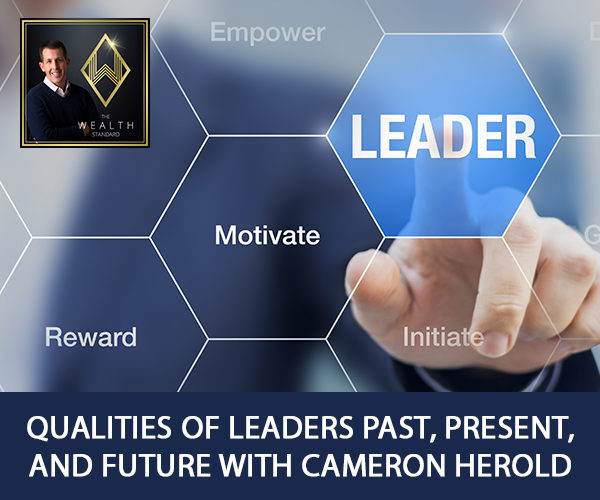
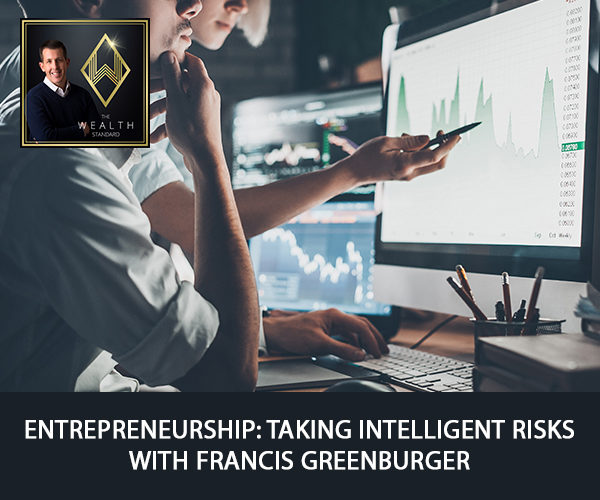
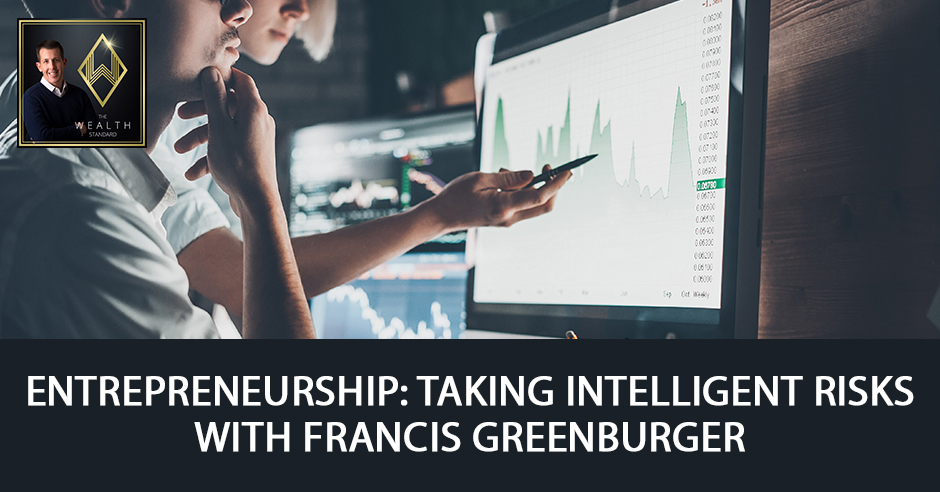
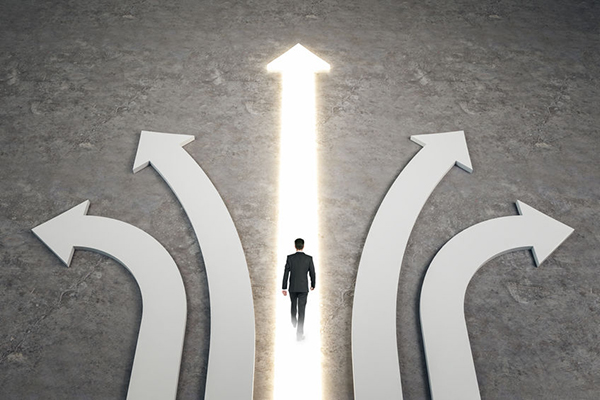

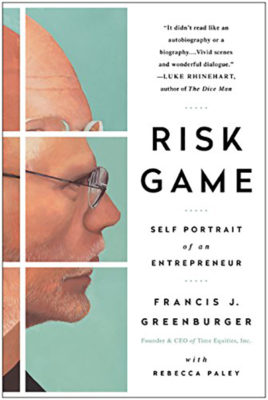
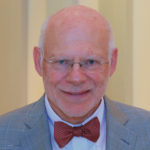 As the Founder and guiding force behind Time Equities, Inc., Francis Greenburger has earned a reputation for outstanding integrity and an uncanny ability to foresee changing directions and create value in a variety of real estate markets.
As the Founder and guiding force behind Time Equities, Inc., Francis Greenburger has earned a reputation for outstanding integrity and an uncanny ability to foresee changing directions and create value in a variety of real estate markets.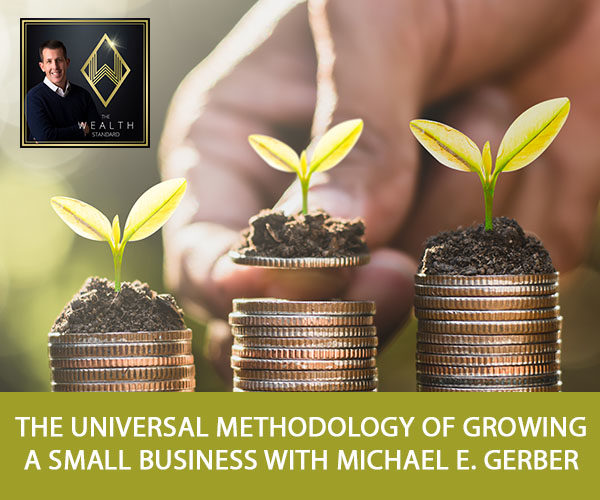
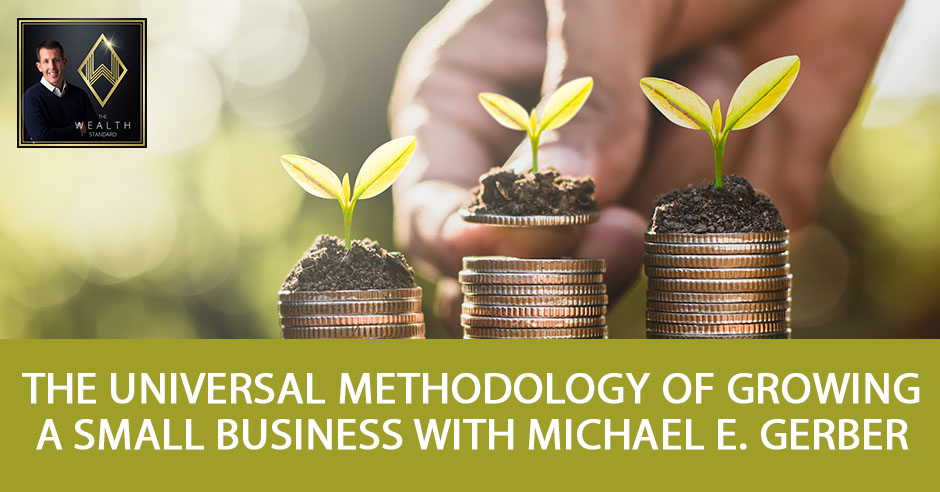
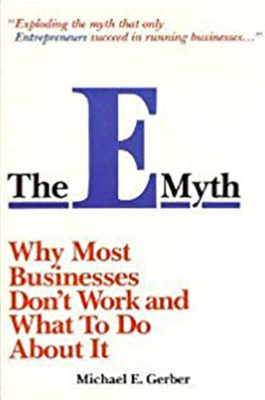


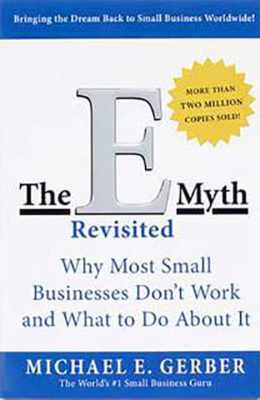
 Michael E. Gerber is the founder of Michael E. Gerber Companies and E-Myth Worldwide. He has had nearly 100,000 business/coaching clients over his career and has consistently been called “the World’s #1 Small Business Guru” — the entrepreneurial and small business thought leader who has impacted the lives of millions of small business owners and hundreds of thousands of companies worldwide for over 40 years.
Michael E. Gerber is the founder of Michael E. Gerber Companies and E-Myth Worldwide. He has had nearly 100,000 business/coaching clients over his career and has consistently been called “the World’s #1 Small Business Guru” — the entrepreneurial and small business thought leader who has impacted the lives of millions of small business owners and hundreds of thousands of companies worldwide for over 40 years.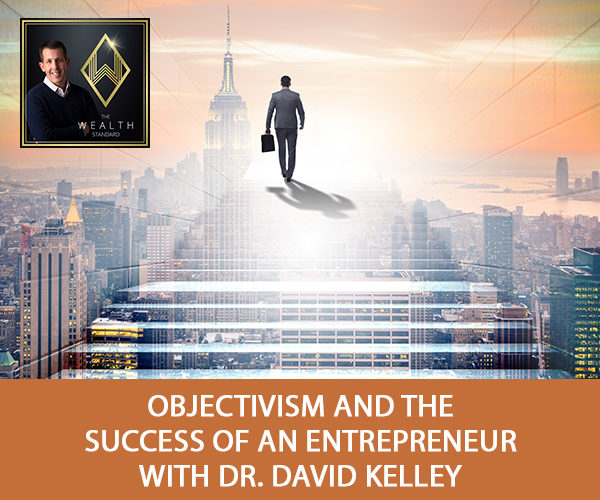
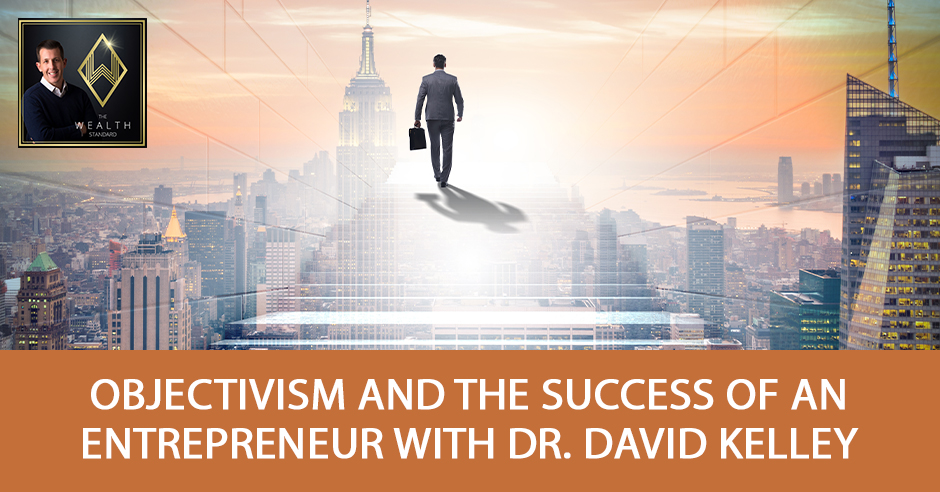
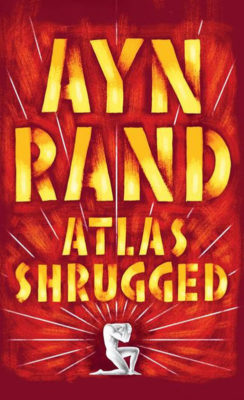

 Dr. David Kelley founded The Atlas Society in 1990 and served as Executive Director through 2012, before serving as the Chief Intellectual Officer, where he was responsible for overseeing all the content produced by the organization: articles, videos, talks at conferences, etc.
Dr. David Kelley founded The Atlas Society in 1990 and served as Executive Director through 2012, before serving as the Chief Intellectual Officer, where he was responsible for overseeing all the content produced by the organization: articles, videos, talks at conferences, etc.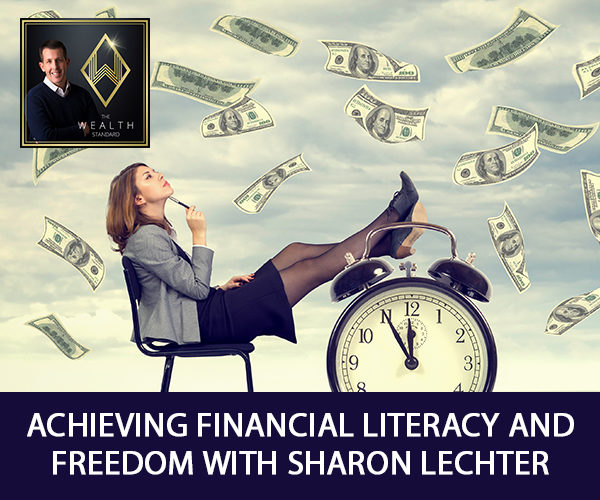
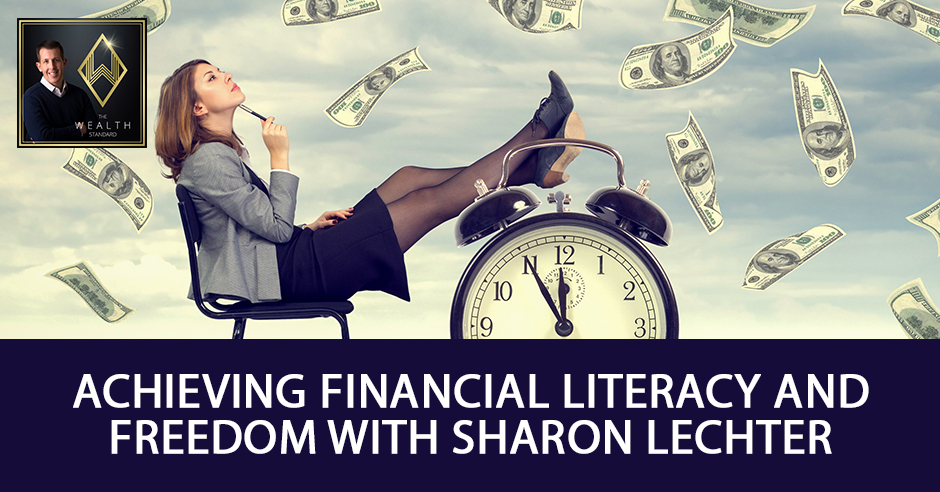


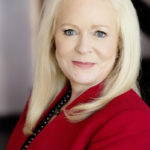 Sharon Lechter is internationally recognized as a financial literacy expert and keynote speaker. She is a New York Times Bestselling author, successful entrepreneur, philanthropist, and licensed CPA and CGMA.
Sharon Lechter is internationally recognized as a financial literacy expert and keynote speaker. She is a New York Times Bestselling author, successful entrepreneur, philanthropist, and licensed CPA and CGMA.













